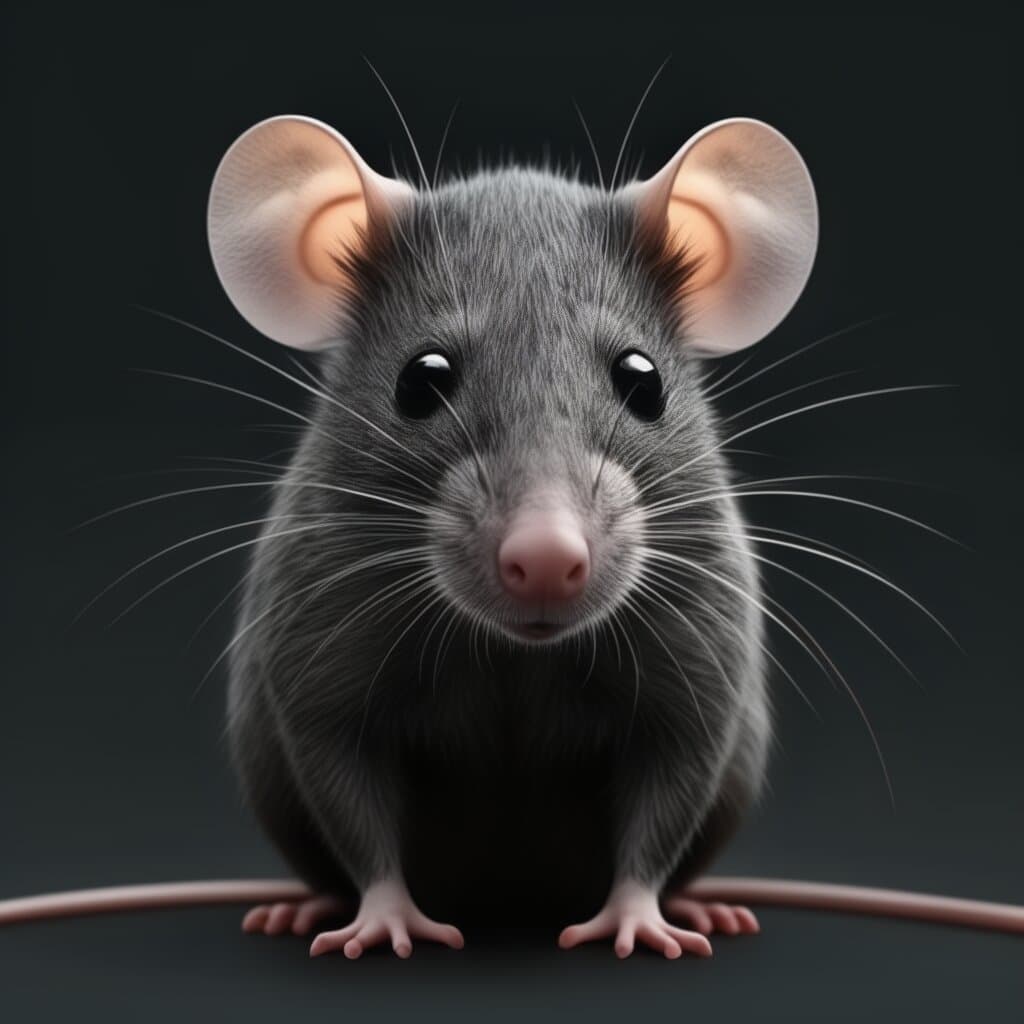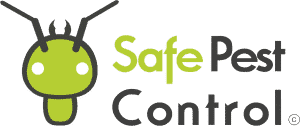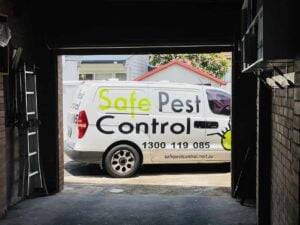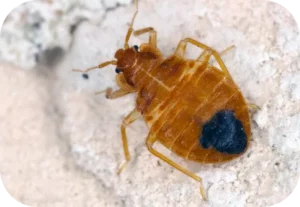Rodents, often unnoticed, play a significant role in public health concerns within urban environments like Sydney. While their presence is usually associated with property damage or food contamination, their impact on allergic reactions is profound and warrants attention. This series will explore the intricate relationship between rodent exposure and allergic health issues, emphasizing the need for effective pest control solutions.
The Hidden Allergens: Rodent Urine and its Effects
Rodent urine is one of the most pervasive yet underrecognized triggers of allergic reactions in urban environments. This potent allergen can be found wherever rodents are present, from homes and businesses to public spaces like parks and subway stations. The proteins in rodent urine, specifically from rats and mice, are highly allergenic and can cause a range of health issues that many people might not immediately attribute to rodents.
Widespread Presence and Impact of Rodent Urine
In densely populated urban areas, the spread of rodent urine is facilitated by the high mobility and large populations of rodents. These animals frequently urinate to mark their territory, leaving behind trails of urine that can dry and become airborne as particulate matter. This dried urine can then be inhaled by humans, leading to exposure without direct contact with rodents.
Respiratory Symptoms and Allergic Sensitization
The inhalation of airborne particles from dried rodent urine can lead to immediate respiratory symptoms such as sneezing, coughing, and wheezing, particularly in individuals with pre-existing respiratory conditions like asthma. Over time, continued exposure can lead to allergic sensitization, where the immune system becomes overly reactive to the proteins found in the urine. This sensitization increases the risk of developing more severe allergic reactions upon subsequent exposures.
Contribution to Long-Term Allergic Diseases
Research has shown that the proteins in rodent urine are not only triggers for immediate allergic reactions but also contribute to the development of chronic allergic diseases. For instance, asthma can be exacerbated or even initiated by ongoing exposure to rodent allergens. These proteins provoke the immune system to release inflammatory mediators, which lead to the chronic inflammation characteristic of asthma.
The Mechanism of Allergy Development from Rodents
The development of allergies from rodent urine involves a complex immune response. When individuals are exposed to allergens such as rodent urine, their immune system can overreact, leading to what is known as allergen-induced airway inflammation.
Immune System Overreaction to Rodent Urine
Upon exposure to rodent urine, the immune system recognizes the proteins as foreign invaders and mounts an immune response. This response involves the production of Immunoglobulin E (IgE) antibodies, which bind to the allergens. The binding of IgE to allergens triggers the release of histamine and other chemicals from cells called mast cells, leading to inflammation and typical allergy symptoms.
Chronic Implications of Allergen Exposure
This inflammatory response is particularly concerning because it signifies not only acute allergic reactions but also the potential development of chronic respiratory conditions. Frequent or sustained exposure to rodent urine allergens can maintain a high level of inflammation in the airways, leading to remodelling of the airway architecture and potentially permanent respiratory impairment.
Urban Challenges and Exposure Risks
In urban settings, exposure to rodent allergens is more common than many might expect. With significant rodent populations, the probability of encountering rodent urine, whether in public spaces or private residences, is high. This widespread exposure poses a significant public health challenge, emphasizing the need for effective rodent control and allergen management strategies to protect urban populations from the hidden dangers of rodent urine.
Addressing Public Health Concerns
The public health implications of rodent allergen exposure are vast. The World Health Organization has highlighted the need for better urban management to control allergen exposure, stressing that reducing rodent populations and their detritus is critical. Dead rodents, if not promptly and safely removed, can further exacerbate the problem by continuing to release allergens into the environment.
Rodent Control and Allergic Reaction Prevention
To mitigate these public health threats, the implementation of rodent-proof containers and thorough cleaning with a disinfectant or bleach solution is essential. This helps not only to manage the existing rodent population but also to prevent further exposure to allergens. Residents are advised to wash their hands thoroughly after handling pet food or coming into contact with areas where rodents may live.
For Sydney residents concerned about rodent exposure and its health implications, speaking to a rodent pest control expert is crucial. Contacting a professional at 1300 119 085 can provide you with tailored solutions to reduce your risk of allergic reactions and improve your living environment.
The Allergic Reactions Triggered by Rodent Urine
Rodent Urine as a Potent Allergen
In urban settings like Sydney, the presence of rodent urine poses a significant public health concern. This urine, especially from common urban dwellers such as rats and mice, contains potent proteins that can trigger allergic reactions in humans. Due to rodents’ secretive nature and tendency to inhabit less visible areas like behind walls, in drop ceilings, or in attics, their urine can saturate these spaces unnoticed.
Persistence and Risks in Urban Environments
The persistence of rodent urine in concealed urban spaces creates an ongoing risk for allergic sensitization. As rodents traverse these hidden pathways in buildings, they leave behind urine that can dry and become particulate, allowing allergens to become airborne and more likely to be inhaled by humans. This frequent, often unnoticed exposure can exacerbate respiratory symptoms, especially in those with pre-existing conditions like asthma or other respiratory allergies.
Impact on Public Health
The health impact of rodent urine in urban environments is substantial, as it contributes to the quality of indoor air and can significantly affect those with respiratory vulnerabilities. In densely populated cities, where human and rodent populations closely coexist, the management of rodent populations and their detritus becomes a critical component of public health strategy.
Allergic Sensitization and Its Consequences
Allergic sensitization to rodent urine is an abnormal immune system response to what are essentially harmless proteins. This process begins when an individual’s immune system erroneously identifies these rodent proteins as harmful, triggering an immune response that can lead to various allergic symptoms.
Mechanism of Sensitization
Upon initial exposure, the immune system produces specific antibodies (IgE) to these proteins. With repeated exposure, these antibodies recognize and bind to the allergens, leading to the release of inflammatory mediators such as histamine from cells like mast cells and basophils. This release causes the symptoms commonly associated with allergic reactions, such as itching, swelling, and respiratory distress.
Long-term Exposure and Heightened Sensitivity
For individuals repeatedly exposed to rodent urine, each subsequent exposure can provoke a more intense immune response. This heightened sensitivity can result in more severe allergic reactions, potentially leading to chronic allergic conditions. The body’s increased readiness to react to these allergens means that even minimal contact with rodent urine can trigger significant symptoms.
Public Health Implications
The cycle of exposure and sensitization presents a considerable challenge in urban pest management, emphasizing the need for effective strategies to control rodent populations and minimize human contact with rodent-excreted allergens. Regular pest control, proper sanitation, and public education on the risks associated with rodent allergens are crucial measures to mitigate these health risks.
Addressing the issue of rodent urine allergens is not just about pest control but also about improving indoor environmental health, which can have far-reaching effects on the well-being of urban populations.
Impact on Respiratory Health
Rodent urine contains allergens that can have a profound impact on respiratory health, particularly in individuals with pre-existing respiratory conditions. When the urine dries, it can fragment into fine particles that become airborne, posing a risk to anyone who inhales them.
Allergen-Induced Airway Inflammation
The primary concern with inhaling allergens from rodent urine is allergen-induced airway inflammation. This condition arises when the immune system reacts to inhaled allergens by releasing inflammatory substances that cause swelling and irritation in the airways. Over time, this inflammation can disrupt normal respiratory function and exacerbate or lead to the development of chronic respiratory diseases such as asthma.
Mechanisms of Asthma Exacerbation
For individuals with asthma, exposure to rodent urine allergens can trigger episodes of asthma symptoms. These symptoms might include coughing, wheezing, shortness of breath, and tightness in the chest. The mechanism behind this involves the allergens provoking an increase in mucus production and muscle constriction around the airways, which reduces airflow and makes breathing difficult.
Chronic Respiratory Issues
Chronic exposure to these allergens can lead to persistent airway inflammation, which over time may cause structural changes in the respiratory system, such as airway remodeling. Airway remodeling involves changes in the cellular and molecular structure of the bronchial walls and can lead to a permanent decrease in pulmonary function. This process is particularly concerning because it can reduce the effectiveness of standard asthma treatments and lead to a long-term decline in respiratory health.
The Role of Environmental Control
Given the significant impact that rodent urine allergens can have on respiratory health, controlling the environment becomes crucial. Reducing exposure to these allergens can help prevent the onset of new respiratory conditions and manage existing ones. Effective measures include:
Ensuring thorough cleaning: Regular cleaning to remove dust and potential allergens from surfaces and air can reduce the concentration of airborne allergens.
Improving ventilation: Enhancing air circulation can help dilute and remove airborne allergens from indoor environments.
Using air purifiers: High-efficiency particulate air (HEPA) filters in air purifiers can trap fine particles, including allergens, thus reducing the amount of inhaled allergens.
Proactive Pest Control
In addition to environmental controls, proactive pest management is essential to reduce the presence of rodents and their urine. Regular inspections, sealing entry points, and maintaining cleanliness can significantly reduce the risk of infestation and subsequent allergen exposure.
The allergens in rodent urine represent a serious risk to respiratory health, particularly for those with existing conditions like asthma. Understanding the risks and implementing effective environmental and pest control strategies are key to protecting public health, especially in urban areas where rodent populations are higher. Taking these steps can help mitigate the adverse effects of these allergens and promote a healthier living environment for everyone.

Protective Measures and Prevention
Importance of Hygiene
Maintaining cleanliness is paramount in areas where rodents are present to minimize the risk of allergic reactions and disease transmission. By implementing proper hygiene practices, individuals can effectively reduce exposure to rodent-related allergens and pathogens.
Regular Cleaning and Disinfection
Regular cleaning with a disinfectant or bleach solution is crucial for neutralizing allergens and reducing the presence of harmful pathogens. Surfaces should be cleaned thoroughly, especially in areas where rodent activity is suspected or confirmed. Paying particular attention to areas where rodents may have left droppings, urine, or other excretions is essential for preventing allergen buildup and minimizing health risks.
Safe Disposal of Dead Rodents
In cases where rodents are found deceased, prompt and safe disposal is essential. Decomposing rodent bodies can continue to release allergens and attract other pests, exacerbating health risks. Using gloves and a mask, carefully remove the dead rodent, double-bag it in plastic, and dispose of it in a sealed outdoor trash bin to prevent further contamination.
Utilizing Rodent-Proof Containers for Food Storage
Rodent-proof containers play a crucial role in preventing further infestation and reducing allergen exposure, especially in areas where food is stored. By effectively sealing food sources, such as pet food, in rodent-proof containers, individuals can deter rodents from accessing these resources, thereby decreasing their presence and associated health risks.
How Rodent-Proof Containers Work
Rodent-proof containers are specifically designed to prevent rodents from accessing stored food. These containers feature secure lids and durable construction that rodents cannot easily chew through or access. By using rodent-proof containers, individuals can safeguard their food supplies and reduce the likelihood of attracting rodents to their homes or businesses.
Importance in Urban Environments
In densely populated urban areas like Sydney, where rodents are prevalent, the use of rodent-proof containers is particularly important. By taking proactive measures to secure food sources, individuals can help mitigate the risk of rodent infestations and minimize the associated health hazards, including allergic reactions and disease transmission.
Maintaining hygiene and utilizing rodent-proof containers are essential components of effective rodent management strategies. By incorporating these practices into routine household or business maintenance, individuals can minimize the risk of allergic reactions, disease transmission, and property damage associated with rodent infestations. Taking proactive steps to prevent and control rodent populations not only protects individual health but also contributes to the overall well-being of communities.
For comprehensive guidance and effective solutions to rodent problems in Sydney, residents should consult a rodent pest control expert. By calling 1300 119 085, you can receive professional advice and services tailored to your specific needs.
Broader Implications of Rodent-Borne Diseases
Understanding Rodent-Borne Diseases
Beyond the allergens they produce, rodents are also carriers of various diseases that pose serious public health risks. These include rodent-borne diseases like tick-borne relapsing fever and Lyme disease, which can have severe health consequences if not promptly addressed.
Tick-Borne Relapsing Fever
Tick-borne relapsing fever poses a significant health risk, with rodents serving as primary reservoirs for the bacteria responsible for transmitting the disease. Ticks that have fed on infected rodents can transmit the bacteria to humans through subsequent bites, leading to infection. Awareness of the role of rodents in the transmission cycle of tick-borne relapsing fever is essential for effective disease prevention.
Disease Characteristics and Symptoms
Tick-borne relapsing fever is characterized by recurring episodes of fever, accompanied by symptoms such as headache, muscle and joint aches, nausea, and vomiting. These symptoms can be debilitating and may recur over several weeks if left untreated. Prompt recognition and treatment of the disease are critical to prevent complications and reduce the duration and severity of symptoms.
Importance of Rodent Control
Controlling rodent populations is key to reducing the incidence of tick-borne relapsing fever. By limiting the number of infected rodents, the risk of ticks becoming infected and transmitting the bacteria to humans is significantly reduced. Implementing effective rodent control measures, such as habitat modification, trapping, and removal, can help mitigate the risk of tick-borne diseases in rodent-infested areas.
Lyme Disease: A Growing Concern in Urban Environments
Lyme disease is another significant health threat transmitted by ticks, with rodents playing a crucial role in the disease transmission cycle. As urban and suburban areas continue to expand, the risk of Lyme disease transmission from rodents and ticks becomes increasingly prevalent.
Disease Symptoms and Complications
Lyme disease can cause a range of symptoms, including a characteristic bull’s-eye rash, fever, fatigue, and muscle and joint pain. In some cases, the disease can progress to more severe complications, including neurological disorders and heart problems. Early diagnosis and treatment are essential for preventing long-term complications and reducing the severity of symptoms.
Rodent Control as a Prevention Strategy
Controlling rodent populations in urban and suburban areas is crucial to minimizing the risk of Lyme disease transmission. By reducing the abundance of rodents, the number of infected ticks in the environment is also reduced, decreasing the likelihood of human exposure to the bacteria responsible for Lyme disease.

The Role of Rodent Control in Disease Prevention
In , rodent control plays a vital role in preventing tick-borne diseases such as tick-borne relapsing fever and Lyme disease. By effectively managing rodent populations, individuals can reduce the risk of tick infestations and subsequent disease transmission. Awareness of the connection between rodents, ticks, and disease transmission is essential for implementing targeted control measures and protecting public health in urban and suburban environments.
Preventative Strategies and Public Health Interventions
Rodent Control as a Public Health Strategy
Effective rodent control is imperative for safeguarding public health by addressing not only the allergens linked to rodent urine but also the transmission of rodent-borne diseases. Urban development plans should incorporate comprehensive strategies aimed at minimizing rodent habitats and access to food sources, thereby mitigating the risks posed by these pests.
Urban Development Strategies for Rodent Control
In urban environments like Sydney, where rodents thrive amidst bustling human populations, urban planning must prioritize rodent control measures. Implementing strategies such as proper waste management, maintenance of green spaces, and sealing potential entry points into buildings can help reduce rodent habitats and limit their access to food sources.
Utilizing Disinfectants and Bleach Solutions
Regular use of disinfectants or bleach solutions is an effective means of eliminating pathogens associated with rodents. These cleaning agents are capable of killing bacteria and viruses commonly found in areas frequented by rodents, thereby reducing the risk of disease transmission to humans.
Community Awareness and Education
Educating the community about the risks associated with rodents and the importance of preventive measures is paramount. Public health campaigns can play a crucial role in raising awareness about rodent-borne diseases, the significance of maintaining hygiene, and the use of rodent-proof containers for storing food items.
Promoting Professional Pest Control Services
Encouraging the use of professional commercial pest control services is essential for effective rodent management. Pest control experts possess the knowledge, tools, and resources necessary to identify and address rodent infestations effectively. By promoting the utilization of these services, communities can take proactive steps toward minimizing the presence of rodents and mitigating associated health risks.
Protecting Public Health through Comprehensive Rodent Control
In , rodent control is a multifaceted public health strategy that encompasses various measures aimed at reducing rodent populations and minimizing their impact on human health. By implementing urban development strategies, utilizing disinfectants, promoting community awareness, and advocating for professional pest control services, communities can work together to create healthier environments and mitigate the risks posed by rodents. Together, we can take proactive steps to protect public health and ensure the well-being of all residents.
If you are facing rodent issues or are concerned about potential health risks, speaking with a Sydney rodent pest control expert is advisable. Contacting a professional at 1300 119 085 can help you address these issues effectively.
Allergic Reactions and Diagnosis
Types of Allergic Reactions to Rodents
Rodents can trigger various types of allergic reactions, primarily through exposure to their urine and dander. These reactions can manifest as respiratory symptoms, such as sneezing, coughing, and wheezing, or more severe allergic responses like asthma development. Understanding these reactions is crucial for timely and effective treatment.
Diagnosing Rodent-Related Allergies
Allergic reactions to rodents are typically diagnosed using skin prick tests or specific IgE blood tests. These tests help identify whether an individual has an allergic response to certain rodent proteins. Positive results indicate that the person has been sensitized to rodent allergens, necessitating further action to minimize exposure.
Managing Allergic Symptoms
Medical Interventions
For individuals diagnosed with rodent-related allergies, medical interventions can play a crucial role in alleviating symptoms and improving quality of life. Healthcare professionals may recommend various treatments aimed at reducing the allergic response and managing symptoms effectively.
Antihistamines
Antihistamines are commonly prescribed to relieve symptoms such as sneezing, itching, and nasal congestion caused by rodent allergens. These medications work by blocking the action of histamine, a chemical released by the immune system in response to allergen exposure. By reducing histamine levels, antihistamines can help alleviate allergic symptoms and improve overall comfort.
Corticosteroids
Corticosteroids may be prescribed for individuals with more severe or persistent allergic reactions to rodent allergens. These medications work by reducing inflammation in the airways and nasal passages, thereby relieving symptoms such as wheezing, coughing, and shortness of breath. Corticosteroids can be administered orally, via inhalation, or as nasal sprays, depending on the severity of symptoms and individual response to treatment.
Immunotherapy
In cases of severe or persistent rodent-related allergies that do not respond well to other treatments, immunotherapy may be recommended. Immunotherapy, also known as allergy shots, involves gradually exposing the individual to increasing doses of rodent allergens over time. This desensitizes the immune system and reduces the severity of allergic reactions upon subsequent exposure to rodent allergens. Immunotherapy can be highly effective in reducing symptoms and improving the quality of life for individuals with severe allergies.
Home Environment Management for Allergy Control
In addition to medical interventions, managing the home environment is critical for controlling allergic reactions to rodent allergens. Simple measures can significantly reduce allergen exposure and minimize symptoms.
Regular Cleaning
Regular cleaning of the home, especially in areas where rodent activity is suspected or confirmed, is essential for reducing allergen buildup. Vacuuming carpets, sweeping floors, and wiping down surfaces can help remove allergens from the environment and improve indoor air quality.
Use of Air Purifiers
Air purifiers equipped with high-efficiency particulate air (HEPA) filters can effectively remove airborne allergens, including those from rodent urine and dander. Running an air purifier in key areas of the home, such as bedrooms and living rooms, can help reduce allergen exposure and alleviate symptoms for individuals with rodent-related allergies.
Rodent-Proof Measures
Implementing rodent-proof measures, such as sealing cracks and crevices, storing food in airtight containers, and keeping outdoor areas clean and free of debris, is essential for preventing further exposure to rodent allergens. By eliminating potential hiding places and food sources, individuals can minimize the risk of rodent infestations and subsequent allergic reactions.
Holistic Approach to Allergy Management
In , managing rodent-related allergies requires a holistic approach that combines medical interventions with home environment management strategies. By working with healthcare professionals to identify effective treatments and implementing proactive measures to reduce allergen exposure in the home, individuals can effectively control symptoms and improve their quality of life. Together, these interventions offer hope for individuals living with rodent-related allergies, empowering them to lead healthier, more comfortable lives.
Preventing Exposure to Rodent Allergens
Strategic Use of Rodent Proof Containers
Using rodent-proof containers for food storage, especially pet food, is a simple yet effective way to deter rodents. These containers prevent rodents from accessing food sources, thereby reducing their presence and the risk of allergen exposure.
Importance of Regular Cleaning
Regular cleaning with a disinfectant or bleach solution helps eliminate rodent allergens from surfaces and air. Paying special attention to areas like kitchens, basements, and attics is crucial, as these are common rodent hideouts.
For further assistance and expert advice on managing rodent infestations and preventing allergic reactions, contact a Sydney rodent pest control expert at 1300 119 085. Professional help can provide you with the necessary tools and strategies to keep your environment safe and healthy.
Impact of Rodent Allergens on Respiratory Health
Rodent allergens, particularly those present in urine and dander, are known to play a significant role in the development and worsening of respiratory conditions, such as asthma. Understanding how these allergens trigger asthma is crucial for effective management and prevention.
Role of Rodent Allergens in Asthma Development
Exposure to rodent allergens can lead to the development of asthma, especially in individuals predisposed to allergic reactions. When these allergens are inhaled, they can induce an immune response in susceptible individuals, leading to the production of allergen-specific Immunoglobulin E (IgE) antibodies.
Allergen-Induced Airway Inflammation
The production of IgE antibodies in response to rodent allergens triggers an inflammatory cascade in the airways, known as allergen-induced airway inflammation. This inflammation is a critical factor in the development and exacerbation of asthma symptoms.
Mechanism of Asthma Exacerbation
Upon subsequent exposure to rodent allergens, the IgE antibodies recognize and bind to the allergens, triggering the release of inflammatory mediators such as histamine and leukotrienes from cells like mast cells and eosinophils. These mediators cause inflammation, mucous secretion, and airway constriction, leading to asthma symptoms such as wheezing, coughing, chest tightness, and difficulty breathing.
Impact on Respiratory Health
Repeated exposure to rodent allergens can lead to chronic inflammation of the airways, making individuals more susceptible to asthma attacks and exacerbations. In addition to triggering acute symptoms, ongoing exposure to rodent allergens can also contribute to the long-term progression of asthma and the development of irreversible airway remodelling.
Understanding and Addressing Rodent-Induced Asthma
Rodent allergens are potent triggers of respiratory conditions like asthma, with rat urine being a particularly significant source of allergens. By understanding how these allergens induce airway inflammation and exacerbate asthma symptoms, individuals and healthcare professionals can take proactive measures to reduce exposure and manage asthma effectively. Implementing strategies such as allergen avoidance, proper cleaning, and targeted medical interventions can help mitigate the impact of rodent allergens on respiratory health and improve the quality of life for individuals living with asthma.
Strategies for Managing Asthma Related to Rodent Allergens
Environmental Control
To manage and prevent asthma symptoms triggered by rodents, reducing allergen exposure is key. This includes implementing thorough cleaning regimes, using air purifiers to reduce airborne allergens, and ensuring that the living environment is free from rodents.
Medical Management of Asthma
For individuals affected by rodent-related asthma, regular follow-ups with a healthcare provider are essential. Medications such as inhaled corticosteroids or bronchodilators may be prescribed to control symptoms and prevent asthma attacks.
Preventive Measures Against Rodent Allergens
Sealing potential entry points in the home is a highly effective strategy for preventing rodent infestations and minimizing exposure to rodent allergens. By closing off avenues and other buildings of entry, individuals can create a barrier that deters rodents from entering their living spaces and reduces the risk of allergen exposure.
Identifying and Sealing Entry Points
Key areas to inspect and seal include small openings around pipes, gaps in windows or doors, and any cracks in the foundation or exterior walls. Rodents are adept at squeezing through tiny openings, so thorough sealing is essential to prevent their entry. Sealant materials such as caulk, steel wool, or expanding foam can be used to fill gaps and cracks effectively.
Importance of Comprehensive Sealing
To effectively prevent rodent entry, it’s essential to be thorough in identifying and sealing all potential entry points. Rodents can exploit even the smallest openings, so attention to detail is crucial. Additionally, regular maintenance and inspection of sealed areas can help ensure that the barriers remain intact over time.
Regular Inspections and Maintenance: Early Detection and Mitigation
Conducting regular inspections and maintenance of the property is key to early detection and mitigation of rodent infestations. By actively monitoring for signs of rodent activity and taking prompt action to address any issues, individuals can prevent infestations from escalating and minimize allergen exposure.
Signs of Rodent Activity
Common signs of rodent activity include droppings, gnaw marks on surfaces or food packaging, and rub marks along walls or baseboards. Additionally, individuals may hear scratching or scurrying noises coming from walls, ceilings, or other hidden spaces. Regularly checking these areas can help identify infestations early and prevent further proliferation.
Immediate Action and Mitigation
Upon detecting signs of rodent activity, it’s essential to take immediate action to address the issue. This may involve setting traps, sealing entry points, and removing potential food sources. Professional pest control services can also be enlisted for more comprehensive eradication and prevention measures.
Proactive Measures for Rodent Control
Sealing entry points and conducting regular inspections and maintenance are proactive measures for controlling rodent infestations and minimizing allergen exposure. By taking steps to prevent rodent entry and promptly addressing any signs of infestation, individuals can create healthier living environments and reduce the risk of respiratory issues associated with rodent allergens. Vigilance and proactive management are key to effective rodent control and allergen mitigation strategies.
If you suspect a rodent infestation or suffer from allergy or asthma symptoms that may be related to rodents, do not hesitate to seek professional help. Contacting a Sydney rodent pest control expert at 1300 119 085 can provide you with effective solutions and peace of mind.
Diseases Transmitted by Rodents and Public Health Strategies
Overview of Rodent-Borne Diseases
Rodents are notorious carriers of several diseases that can severely impact human health. Beyond causing allergic reactions, rodents are vectors for infectious diseases such as hantavirus, leptospirosis, and the aforementioned Lyme disease and tick-borne relapsing fever. These diseases can be transmitted through direct contact with rodent urine, feces, or saliva, or indirectly through tick bites.
Understanding Hantavirus and Leptospirosis
Hantavirus is contracted by inhaling dust contaminated with rodent droppings or urine. It causes severe respiratory illness, including hantavirus pulmonary syndrome, which can be fatal. Leptospirosis, transmitted through water or soil contaminated with infected rodent urine, leads to symptoms ranging from mild flu-like effects to severe and potentially life-threatening infections affecting the liver and kidneys.
Effective Public Health Responses to Rodent-Borne Diseases
Surveillance and Monitoring
Public health authorities prioritize surveillance and monitoring of rodent populations to identify potential outbreaks of diseases early. This proactive approach allows for timely interventions and reduces the spread of disease.
Education and Public Awareness
Educating the public about the risks associated with rodent infestations and the importance of preventive measures is crucial. Awareness campaigns can inform communities about how to properly dispose of waste, secure food sources, and minimize rodent habitats around homes.
Preventive Measures and Control Strategies
Implementation of Community-Wide Rodent Control Programs
Community-wide rodent control programs play a vital role in combatting the spread of rodent-borne diseases and promoting public health. These programs focus on various strategies aimed at reducing rodent populations, improving sanitation, and raising awareness about the importance of rodent control measures.
Reducing Rodent Populations
One of the primary objectives of community-wide rodent control programs is to reduce rodent populations through targeted interventions. These interventions may include trapping and removal, baiting, and habitat modification to discourage rodent habitation. By addressing rodent populations at the community level, these programs aim to minimize the risk of disease transmission and allergen exposure.
Implementing Sanitation Measures
Improving sanitation practices is essential for preventing rodent infestations and reducing the availability of food and harborage for rodents. Community-wide rodent control programs may involve initiatives to promote proper waste management, regular garbage collection, and the maintenance of clean public spaces. By reducing food sources and potential nesting sites, these measures can help deter rodent activity and mitigate associated health risks.
Public Education and Awareness
Community-wide rodent control programs also prioritize public education and awareness campaigns to inform residents about the importance of rodent control measures. These campaigns may include educational materials, workshops, and outreach events aimed at teaching residents how to identify signs of rodent infestation, implement preventive measures, and safely manage rodent-related issues. By empowering individuals with knowledge and resources, these programs seek to foster a culture of proactive rodent management within the community.
Personal Protective Measures for Individuals
In addition to community-wide efforts, individuals are encouraged to take personal protective measures to minimize their risk of exposure to rodent-borne diseases and allergens.
Using Rodent-Proof Containers
Storing food and waste in rodent-proof containers is an effective way to prevent rodents from accessing food sources and spreading disease. These containers are designed to prevent rodents from chewing through or accessing stored items, thereby reducing the risk of contamination.
Avoiding Contact with Infested Areas
Individuals should avoid contact with areas heavily infested by rodents, such as abandoned buildings, trash heaps, and areas with visible rodent activity. Direct contact with rodents or their excretions can increase the risk of disease transmission and allergen exposure.
Wearing Protective Gear
When cleaning areas potentially contaminated by rodents, individuals should wear protective gloves and masks to minimize direct contact with allergens and pathogens. This can help reduce the risk of respiratory and skin-related health issues associated with rodent exposure.
Collective Action for Rodent Control and Public Health
In, community-wide rodent control programs and personal protective measures are essential components of efforts to mitigate the spread of rodent-borne diseases and allergens. By implementing targeted interventions, improving sanitation practices, and raising public awareness, communities can work together to create healthier environments and reduce the impact of rodent-related health risks. Additionally, individual actions such as using rodent-proof containers and practicing proper hygiene can further contribute to the overall effectiveness of rodent control efforts. Through collective action and collaboration, communities can achieve significant strides in promoting public health and well-being.
For tailored advice and effective control measures against rodent infestations, residents of Sydney should contact a rodent pest control expert. By dialing 1300 119 085, you can access professional help to ensure your home and community remain safe from the health risks posed by rodents.
Part Seven: Recognizing and Responding to Symptoms of Rodent-Borne Diseases
Identifying Symptoms of Common Rodent-Borne Diseases
The early recognition of symptoms associated with diseases transmitted by rodents is crucial for prompt and effective treatment. For instance:
Hantavirus symptoms include fatigue, fever, muscle aches, especially in large muscle groups, dizziness, and in severe cases, respiratory distress.
Leptospirosis presents with high fever, headache, chills, muscle aches, vomiting, jaundice, red eyes, abdominal pain, diarrhea, or rash.
Symptoms of Lyme disease often start with a distinct circular rash, followed by fever, headaches, and muscle or joint pain.
Understanding these symptoms allows individuals to seek medical attention swiftly, improving the chances of a full recovery without severe complications.
The Critical Nature of Early Medical Intervention
Early medical intervention is essential for managing rodent-borne diseases effectively. Diseases like Lyme disease require antibiotics, and the sooner they are administered, the better the outcomes typically are. Delayed treatment can lead to more severe, sometimes chronic, health issues, such as severe joint pain, neurological problems, and heart rhythm irregularities.
Steps for Immediate Action Upon Symptom Recognition
When to Seek Medical Help
If you or someone around you experiences symptoms suggestive of a rodent-borne disease, especially after known exposure to rodents or their droppings, it is critical to seek medical help immediately. Quick action can prevent the progression of the disease and mitigate the risk of severe complications.
The Importance of Detailed History Giving
Providing doctors with a detailed history of potential rodent exposure can greatly assist in diagnosing these diseases. Mention any known contact with rodents, tick bites, or even activities that might have exposed you to rodent-infested areas.
Community Health Strategies
Regular Health Check-Ups
Encouraging regular health check-ups can help in the early detection of diseases, particularly in areas known for significant rodent populations. These check-ups provide an opportunity for healthcare providers to educate patients about the symptoms and risks of rodent-borne diseases.
Enhancing Local Health Services
Strengthening local health services to respond effectively to outbreaks of rodent-borne diseases involves training healthcare providers to recognize these diseases promptly and providing them with the resources they need to treat them.
If you are experiencing symptoms or have concerns about potential rodent exposure, don’t hesitate to seek professional medical advice. Additionally, for expert assistance in controlling rodent populations to prevent these diseases, contact a Sydney rodent pest control expert at 1300 119 085.
Long-Term Health Effects of Rodent Infestations
Chronic Health Issues from Continuous Rodent Exposure
Continuous exposure to rodent infestations can have profound and long-lasting effects on human health, ranging from respiratory conditions to psychological problems. Understanding these chronic health issues is crucial for implementing effective mitigation strategies and protecting vulnerable populations.
Respiratory Conditions
Prolonged exposure to rodent allergens, such as urine and dander, is strongly linked to the development and exacerbation of chronic respiratory conditions, including asthma. The persistent inhalation of these allergens can lead to airway inflammation, bronchoconstriction, and respiratory symptoms that may become chronic over time.
Allergic Reactions
Continuous exposure to rodent allergens can also result in persistent allergic reactions, such as sneezing, coughing, nasal congestion, and skin irritation. Individuals who are sensitized to rodent allergens may experience these symptoms regularly, leading to reduced quality of life and impaired daily functioning.
Psychological Effects
The stress of living in environments with ongoing rodent infestations can contribute to psychological problems, including anxiety, depression, and sleep disturbances. The constant presence of rodents and the associated health risks can create a sense of fear, uncertainty, and unease among residents, impacting their mental well-being.
Impact on Vulnerable Populations
Certain populations, including children, the elderly, and individuals with compromised immune systems, are particularly vulnerable to the adverse health effects of continuous rodent exposure.
Children
Children are especially susceptible to the health impacts of rodent exposure due to their developing immune systems and increased sensitivity to allergens. Prolonged exposure to rodent allergens during critical developmental stages can lead to lifelong respiratory conditions, allergic sensitization, and impaired lung function that may persist into adulthood.
Elderly
Elderly individuals may also be at heightened risk of health complications from continuous rodent exposure, particularly if they have pre-existing respiratory conditions or compromised immune systems. The cumulative effects of allergen exposure over time can exacerbate existing health issues and increase the risk of respiratory infections and other complications.
Immunocompromised Individuals
Individuals with compromised immune systems, such as those undergoing chemotherapy or living with HIV/AIDS, are particularly susceptible to the adverse health effects of rodent exposure. Their weakened immune response may make them more vulnerable to respiratory infections and allergic reactions, necessitating heightened vigilance and preventive measures.
Protecting Health and Well-Being
In, continuous exposure to rodent infestations poses significant risks to human health, including chronic respiratory conditions, persistent allergic reactions, and psychological problems. Protecting vulnerable populations, such as children, the elderly, and immunocompromised individuals, requires proactive measures to address rodent infestations and minimize allergen exposure. By implementing comprehensive rodent control strategies and promoting public awareness, communities can work together to safeguard the health and well-being of all residents.
Strategies for Sustainable Rodent Management
Integrated Pest Management (IPM)
Implementing an Integrated Pest Management (IPM) approach is essential for sustainable rodent control. IPM involves a combination of strategies tailored to specific environments, focusing on long-term prevention through habitat modification, exclusion techniques, and, if necessary, the judicious use of rodenticides.
Regular Monitoring and Adaptation
Regular monitoring of rodent populations and the effectiveness of control measures is crucial. This allows for adjustments in strategy, ensuring that rodent management efforts remain effective and minimize harm to the environment and non-target species.
Community Engagement and Education
Building Community Awareness
Educating the community about the risks associated with rodents and the importance of maintaining clean and secure environments is key. Workshops, informational brochures, and school programs can raise awareness and empower communities to take proactive steps in rodent management.
Collaboration with Local Health and Pest Control Experts
Collaboration between residents, local health authorities, and pest control professionals can enhance the effectiveness of rodent control programs. This includes sharing information, resources, and strategies to address the public health challenges posed by rodents comprehensively.
To ensure your environment is safe and healthy, consider reaching out to a Sydney rodent pest control expert. By calling 1300 119 085, you can receive expert advice and service to address any rodent issues effectively.
Practical Steps for Households and Businesses to Mitigate Rodent Impact
Effective Rodent Exclusion Techniques
Implementing effective rodent exclusion techniques is essential for preventing infestations and protecting properties from rodent-related damage and health risks. By sealing entry points and maintaining proper sanitation practices, individuals can create a barrier that deters rodents and reduces the risk of infestation.
Sealing Entry Points
Sealing entry points is the first line of defence against rodent infestations. Key areas to inspect and seal include cracks in foundations, gaps around doors and windows, and openings around pipes, and vents. Using materials that rodents cannot chew through, such as steel wool or special sealants, is crucial for long-lasting protection. Thoroughly sealing these entry points prevents rodents from accessing indoor spaces and reduces the likelihood of infestation.
Proper Sanitation Practices
Good sanitation practices are essential for deterring rodents and minimizing their attraction to properties. This involves several key measures:
Keeping Food in Sealed Containers: Storing food in sealed containers prevents rodents from accessing food sources and reduces the risk of contamination. Additionally, keeping pet food in sealed containers and not leaving food out overnight can help deter rodents.
Disposing of Garbage Regularly: Regular garbage disposal prevents the accumulation of food waste and organic matter that can attract rodents. Using secure garbage bins with tight-fitting lids further reduces the likelihood of rodent access.
Maintaining Clean Eating and Food Preparation Areas: Cleaning up spills and crumbs promptly, wiping down surfaces, and removing food debris from eating and food preparation areas helps eliminate potential food sources for rodents.
Reducing Clutter and Nesting Sites: Removing clutter from indoor and outdoor spaces reduces hiding spots and nesting sites for rodents. Outdoor areas should be kept tidy, and indoor clutter should be minimized to discourage rodent habitation.
Proactive Rodent Prevention
Implementing effective rodent exclusion techniques and maintaining proper sanitation practices are essential for preventing rodent infestations and minimizing associated health risks. By sealing entry points, using rodent-proof materials, and practicing good sanitation habits, individuals can create environments that are less attractive to rodents and less susceptible to infestation. Proactive rodent prevention measures are key to protecting properties and promoting health and well-being for occupants.
Implementing Routine Inspections
Importance of Regular Property Assessments
Regular inspections of properties can identify potential rodent activity before it becomes a significant problem. Look for signs of rodent presence, such as droppings, gnaw marks, and nesting materials. Early detection allows for quicker responses, which can prevent the spread of disease and minimize structural damage.
Professional Evaluations
Sometimes, it’s beneficial for businesses, particularly those in the food service and hospitality industries, to invest in professional pest control evaluations. These evaluations can pinpoint vulnerabilities in a property’s pest control strategy and provide customized solutions.
When to Call in Pest Control Professionals
Being able to recognize the signs of rodent infestation is crucial for prompt intervention and effective management of rodent problems. By identifying these signs early, individuals can take proactive measures to address infestations and prevent further damage and health risks.
Sightings of Live or Dead Rodents
One of the most obvious signs of rodent infestation is the sighting of live or dead rodents within or around the property. Common rodent species include mice, rats, and sometimes even squirrels or possums. Seeing rodents during daylight hours, particularly in multiple locations, is a clear indication of a potential infestation.
Noises from Within Walls or Ceilings
Rodents are nocturnal creatures and are often most active at night. If residents hear scratching, scurrying, or gnawing noises coming from within walls, ceilings, or other hidden spaces, it may indicate the presence of rodents. These noises are typically more pronounced during quiet times, such as late at night or early in the morning.
Persistent Presence of Droppings
Rodent droppings are another telltale sign of infestation. Droppings may be found in areas where rodents frequent, such as along baseboards, in kitchen cabinets, or near food storage areas. Fresh droppings are dark and moist, while older droppings may be dry and crumbly. The presence of droppings indicates an active rodent population and the need for intervention.
The Benefits of Professional Rodent Control Services
While DIY methods may offer temporary relief, professional rodent control services provide numerous benefits that extend beyond mere eradication:
Comprehensive Assessment and Intervention
Professional pest controllers conduct a thorough assessment of the property to identify the extent of the infestation and any contributing environmental factors therein. Based on their findings, they develop a tailored intervention plan to effectively eradicate rodents and prevent future infestations.
Access to Specialized Tools and Knowledge
Pest control experts have access to specialized tools, equipment, and knowledge that typical homeowners may not possess. They employ the most effective and humane rodent control methods, including live traps, baits, and exclusion techniques, to address infestations safely and efficiently.
Prevention and Future Protection Strategies
In addition to eradication services, professional pest controllers offer prevention and future protection strategies to minimize the risk of recurring infestations. This may include sealing entry points, implementing sanitation measures, and providing ongoing monitoring and maintenance to safeguard against future rodent activity.
Seeking Professional Help for Effective Rodent Management
Recognizing the signs of rodent infestation and seeking professional help when needed are essential steps in effectively managing rodent problems. Professional pest control services offer comprehensive assessment, intervention, and prevention strategies to address infestations and protect properties from future rodent activity. By leveraging their expertise and resources, individuals can ensure a safer and healthier living environment for themselves and their families.
Don’t let rodents take over your home or business. For professional guidance and effective rodent control solutions, call a Sydney rodent pest control expert at 1300 119 085 today. Ensure your property is secure, clean, and healthy.
Health and Safety Guidelines for Dealing with Rodents
Safe Cleanup Procedures
Dealing with rodents and their droppings requires careful attention to hygiene and safety to prevent the spread of diseases. Here are steps for safe cleanup:
Wear Protective Gear: Always wear gloves, a face mask, and even goggles if you’re cleaning up in a confined space to prevent inhalation of harmful particles.
Ventilate the Area: Before cleaning, ventilate the area for at least 30 minutes to disperse any contaminated dust into the air. Avoid using fans that might spread dust further.
Use a Disinfectant: Wet the droppings, nests, and surrounding area with a disinfectant or bleach solution before starting the cleanup to minimize the release of harmful particles into the air.
Proper Disposal: Double-bag the contaminated materials, seal them, and dispose of them in a covered trash bin. Wash hands thoroughly after removal and cleanup.
Handling Rodent-Contaminated Materials
When you come across materials that have been contaminated by rodents, it’s crucial to handle them with care:
Avoid Disturbing Dust: Gently remove the materials without shaking them to avoid dispersing dust into the air.
Clean All Surfaces: After removal, clean all surfaces with a disinfectant or bleach solution to kill any lingering pathogens.
Check for Damage: Inspect the area for any damage caused by rodents, such as chewed wires or structural weaknesses, which could pose further risks.
Educating About Health Risks
Importance of Public Education
Educating the public about the health risks associated with rodents is vital. Information should be made available on how to identify signs of infestation, the diseases rodents can transmit, and the proper steps to take if exposed to rodent-contaminated environments.
Community Health Programs
Implementing community health programs that focus on rodent control and disease prevention can dramatically reduce the incidence of rodent-related health issues. These programs can provide resources and support for affected individuals and help educate communities on effective prevention strategies.
For comprehensive support in managing rodent infestations and ensuring safe cleanup procedures, reaching out to a Sydney rodent pest control expert is advised. Call 1300 119 085 for professional advice and services that help protect your health and property.
Summary and Final Thoughts on Rodent Control and Public Health
Key Takeaways from the Series
Throughout this series, we’ve explored the significant impact rodents have on public health, from spreading diseases to triggering allergic reactions. Here are the key points to remember:
Rodent Allergens: Rodents, particularly through their urine, can cause severe allergic reactions and contribute to chronic respiratory diseases like asthma.
Diseases Transmitted by Rodents: Rodents are vectors for serious diseases such as hantavirus, leptospirosis, Lyme disease, and tick-borne relapsing fever. Effective control and preventive measures are essential to minimize these health risks.
Importance of Prevention: Using rodent-proof containers, sealing entry points, and maintaining clean environments are critical strategies to prevent rodent infestations.
Safe Cleanup Practices: When dealing with rodent infestations, it’s crucial to follow safe cleanup practices to avoid exposure to harmful pathogens.
Professional Pest Control: For comprehensive management of rodent problems, professional pest control services are highly recommended.
The Role of Community and Professional Services
The battle against rodents is not just an individual effort but a community-wide initiative. It involves coordinated actions from both residents and professional services to effectively manage and mitigate the risks associated with rodents.
Community Efforts
Community efforts should focus on education, regular monitoring of rodent populations, and proper sanitation practices. These collective actions help in creating a safer and healthier environment for everyone.
Professional Pest Control Services
Professional pest control services offer specialized knowledge and tools that are essential for effectively tackling rodent infestations. These experts can provide tailored solutions that address both immediate infestation issues and long-term preventive strategies.
As we conclude this series, it’s important to remember that managing rodent populations is crucial for maintaining public health. If you’re experiencing signs of a rodent infestation or need advice on preventive measures, don’t hesitate to contact a Sydney rodent pest control expert. You can reach professional help at 1300 119 085 to ensure your home or business is safe, clean, and free from health hazards posed by rodents.
Addressing Common Concerns About Rodents and Health
After delving deep into the topic of public health concerns the role of rodents in allergic reactions, and their impact on public health, it’s helpful to answer some common questions that might arise. Here are the frequently asked questions about the health issues with rodents, preventive measures, and emergency responses to allergic reactions:
What are the health issues with small rodents?
Rodents can cause a variety of health problems. They are known carriers of diseases such as hantavirus, leptospirosis, Lyme disease, and tick-borne relapsing fever, which can be transmitted to humans through direct contact with rodent urine, feces, or saliva, or indirectly through vectors like ticks. Additionally, rodents are significant allergen sources, with their urine and dander causing allergic reactions and exacerbating respiratory conditions like asthma.
What precautions can be taken to prevent allergic reactions?
To prevent allergic reactions related to rodent exposure, it’s crucial to:
Maintain cleanliness and reduce clutter where rodents might nest.
Use rodent-proof containers for food storage, especially for pet food.
Seal potential entry points to prevent rodents from entering the home or workplace.
Regularly clean areas where rodent exposure is suspected using a disinfectant or bleach solution.
Consider professional pest control services if rodent presence is detected or suspected.
What is the first and most important action you should take if you notice someone showing all the signs of a severe allergic reaction?
The first and most important action is to call emergency services immediately. Severe allergic reactions, such as those from rodent allergens, can escalate quickly and may result in anaphylaxis, a life-threatening condition. While waiting for medical help, keep the person calm and lying down, and administer an epinephrine auto-injector if available and if you know how to use it.
What will the ER do for an allergic reaction?
In the emergency room, medical personnel will act quickly to stabilize the person’s condition. Treatment may include the administration of epinephrine to reduce the body’s allergic response, oxygen for breathing difficulties, intravenous (IV) antihistamines and corticosteroids to reduce inflammation, and fluids to maintain blood pressure. The ER will also monitor the patient closely for any changes in condition and provide additional care as needed.
Wrapping Up
This comprehensive guide has aimed to arm you with the knowledge and strategies needed to combat the risks associated with rodents. By understanding the health implications and adopting effective prevention and control measures, you can significantly reduce the impact of rodents on your health and enhance your quality of life. Remember, proactive prevention and professional assistance are key to managing rodent-related issues effectively. For expert help, contact a Sydney rodent pest control expert at 1300 119 085.
On-Time Service

5 STAR SERVICE BASED ON 100+ GOOGLE REVIEWS
PET & FAMILY FRIENDLY TREATMENT

ALL YEAR-ROUND PROTECTION
Take Back Control Now
8
REASON TO CHOOSE SAFE PEST CONTROL
- Guarantee protection all year-round
- 30 Years Collective Experience
- An impeccable reputation across Sydney's Suburbs
- Certified treatments & written Warranty On all work carried out
- Family Owned & Operated
- Rated #1 Pest Control In Sydney NSW
- No Mess, No Smell
- Family & Pet Friendly Treatments

REQUEST A QUOTE






